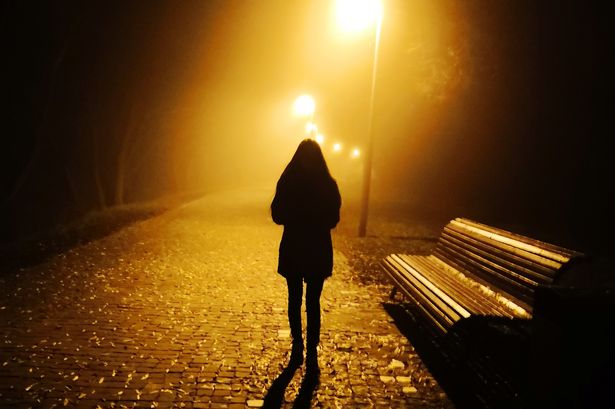By Bianca Calalo
I sat in front of my computer, 6:15 AM on July 5, facing my friend Alyssa through Zoom for the first time in over 2 years. She wore a pink shirt and white earphones, her long black hair thrown over her shoulder, with the fairy and kitchen lights setting her background a glow. I had texted her earlier that morning and she told me that she can’t do the interview then, so she said 6 PM is the time that she can. She apologized to me as she said that her body was tired and rebelling against her, and that hospitals were so very tiring. She sat by herself in an empty apartment, her roommates already moved out since the beginning of the month. When I asked her how she was doing later on she told me she had been resting and she spent 4th of July crying, but she was feeling better now. In the end, all I could think was, “What a lonely day it must have been”.
I started the interview, delayed and flustered, Alyssa said it was fine, she didn’t really have anything else to do anyway. As I had previously sent the questions several days before, Alyssa knew her answers and how to formulate even before I asked my first questions, but I asked about her experiences with lullabies. I had expected her to start with how she sang to her younger siblings, but Alyssa started with a story about her grandmother’s beautiful book of Spanish lullabies. She didn’t sing the songs, she just described how the book looked and the silly songs it contained, but she said that her favorites were the ones that were tender and sweet, not silly. Alyssa said that it was her grandmother who sang to her as a little girl and it made her feel safe, loved, and comforted, something she still feels when she hears those songs. From there, she told me how she wants her younger siblings to experience this as well, so she would sing her favorites to them.
This was a common theme of our talk, comfort and singing as a vehicle for it. Alyssa would keep recalling the two songs from her grandmother’s book as she told me stories, about herself, about her siblings, and about lullabies. I could tell that the story of how she and her little sister, Ruth, came up with their own lullabies together was one of her favorite stories and lullabies, as silly as it was. Alyssa’s stories that answered the questions I sent revolved around her siblings, but the way she told them made me think of how she always seemed to treat others the way she would want to be treated. To be sung to. To be held. To be protected. She told me that she was raised by her grandparents and how loving and caring they were to her, that if it weren’t for them, she wouldn’t have known or cared for lullabies the way she does now. She compared this to whenever she would visit her mother’s apartment, and since her mother had her really young, Alyssa didn’t really listen to age-appropriate songs for a baby or a toddler to hear. So, she sings the songs her grandmother sang to her to her younger siblings whenever she would take care of them, she put in the effort of choosing songs to sing to them so they knew that she cared. That each song, no matter if it’s from Youtube, from her grandmother’s book, or a made up one, is for them specifically and that she was willing to sing or change the songs for them because she listened to them and cared about what they think.
There were a lot of pauses and breaks in our interview, but Alyssa went on to talk about how she experienced music later on. Of how when she feels particularly sad or lonely, stressed and alone without anyone around her for comfort, she would sing to herself. She told me of her night walks by herself at 11 PM, phone dead and quiet because everyone else is at home or sleeping. But not her. She would hold herself, because no one else would, and sing a lullaby about little birds and how their mother would be there to feed and protect them. This was the song that came from her grandmother’s book, and this time she sang it for me. And singing it, she smiled and she lit up, but at the same time I had thought of how lonely it is to need comfort and no one is there to provide it except yourself.
Alyssa then talked about how she makes playlists, adult lullabies as she called them, for herself to fall asleep to because she’s not used to the quiet since she’s moved out for college. She said she loved the sweet and tender songs that told their listener that they are loved and cared for, much like the songs she favored when she was younger. She made them to comfort herself when she felt sad, like someone was singing to her and it would make her feel a little less alone. She also makes playlists for people who she thinks would like the same comfort as her and offered to make me one. I laughed it off, but it made me feel special all the same in knowing that she cared.
Afterwards, once I’ve stopped recording, Alyssa talked about why she was in a hospital, and that she wanted to answer one last question when we were discussing the interview. I started recording our conversation again at this point, however, I decided to not include the recording of that section of our conversation despite Alyssa insisting it was fine, I felt it too sensitive and personal to share. I wanted to give her a hug in the end of it all. It made me think of lullabies, loneliness, and comfort. Of how the lullabies that Alyssa sang to comfort herself sounded extremely lonely to me once she put context into them. There is so much love and care that Alyssa gave in thinking and compiling songs for others, to provide comfort and happiness as best she can, but is anyone doing the same for her?

